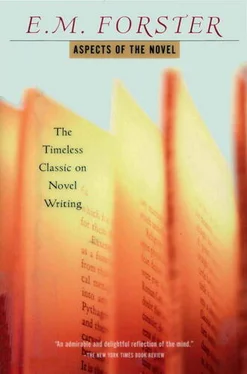"Come, my dear," says he to me one day, "shall we go and take a turn into the country for about a week?" "Ay, my dear," says I, "whither would you go?" "I care not whither," says he, "but I have a mind to look like quality for a week. We'll go to Oxford," says he. "How," says I, "shall we go? I am no horse-woman, and 'tis too far for a coach." "Too far!" says he; "no place is too far for a coach-and-six. If I carry you out, you shall travel like a duchess." "Hum," says I, "my dear, 'tis a frolic; but it you have a mind to it, I don't care." Well, the time was appointed, we had a rich coach, very good horses, a coachman, postilion, and two footmen in very good liveries; a gentleman on horseback, and a page with a feather in his hat upon another horse. The servants all called my lord, and the inn-keepers, you may be sure, did the like, and I was her honour the Countess, and thus we travelled to Oxford, and a very pleasant journey we had; for, give him his due, not a beggar alive knew better how to be a lord than my husband. We saw all the rarities at Oxford, talked with two or three Fellows of Colleges about putting out a young nephew, that was left to his lordship's care, to the University, and of their being his tutors. We diverted ourselves with bantering several other poor scholars, with hopes of being at least his lordship's chaplains, and putting on a scarf; and thus having lived like quality, indeed, as to expense, we went away for Northampton, and, in a word, in about twelve days' ramble came home again, to the tune of about £93 expense.
Contrast with this the scene with her Lancashire husband, whom she deeply loved. He is a highwayman, and each by pretending to wealth has trapped the other into marriage. After the ceremony, they are mutuallv unmasked, and if Defoe were writing mechanically he would set them to upbraid one another, like Mr. and Mrs. Lammle in Our Mutual Friend. But he has given himself over to the humour and good sense of his heroine. She guides him through.
"Truly," said I to him, "I found you would soon have conquered me; and it is my affliction now, that I am not in a condition to let you see how easily I should have been reconciled to you, and have passed by all the tricks you had put upon me, in recompense of so much good-humour. But, my dear," said I, "what can we do now? We are both undone, and what better are we for our being reconciled together, seeing we have nothing to live on?"
We proposed a great many things, but nothing could offer where there was nothing to begin with. He begged me at last to talk no more of it, for, he said, I would break his heart; so we talked of other things a little, till at last he took a husband's leave of me, and so we went to sleep.
Which is both truer to daily life and pleasanter to read than Dickens. The couple are up against facts, not against the author's theory of morality, and being sensible good-hearted rogues, they do not make a fuss. In the later part of her career she turns from husbands to thieving; she thinks this a change for the worse and a natural darkness spreads over the scene. But she is as firm and amusing as ever. How just are her reflections when she robs of her gold necklace the little girl returning from the dancing-class. The deed is done in the little passage leading to St. Bartholomew's, Smithfield (you can visit the place today—Defoe haunts London) and her impulse is to kill the child as well. She does not, the impulse is very feeble, but conscious of the risk the child has run she becomes most indignant with the parents for "leaving the poor little lamb to come home by itself, and it would teach them to take more care of it another time." How heavily and pretentiously a modern psychologist would labour to express this! It just runs off Defoe's pen, and so in another passage, where Moll cheats a man, and then tells him pleasantly afterwards that she has done so, with the result that she slides still further into his good graces, and cannot bear to cheat him any more. Whatever she does gives us a slight shock—not the jolt of disillusionment, but the thrill that proceeds from a living being. We laugh at her, but without bitterness or superiority. She is neither hypocrite nor fool.
Towards the end of the book she is caught in a draper's shop by two young ladies from behind the counter: "I would have given them good words but there was no room for it: two fiery dragons could not have been more furious than they were"—they call for the police, she is arrested and sentenced to death and then transported to Virginia instead. The clouds of misfortune lift with indecent rapidity. The voyage is a very pleasant one, owing to the kindness of the old woman who had originally taught her to steal. And (better still) her Lancashire husband happens to be transported also. They land at Virginia where, much to her distress, her brother-husband proves to be in residence. She conceals this, he dies, and the Lancashire husband only blames her for concealing it from him: he has no other grievance, for the reason that he and she are still in love. So the book closes prosperously, and firm as at the opening sentence the heroine's voice rings out: "We resolve to spend the remainder of our years in sincere penitence for the wicked lives we have led."
Her penitence is sincere, and only a superficial judge will condemn her as a hypocrite. A nature such as hers cannot for long distinguish between doing wrong and getting caught—for a sentence or two she disentangles them but they insist on blending, and that is why her outlook is so cockneyfied and natural, with "sich is life" for a philosophy and Newgate in the place of Hell. If we were to press her or her creator Defoe and say, "Come, be serious. Do you believe in Infinity?" they would say (in the parlance of their modern descendants), "Of course I believe in Infinity—what do you take me for?"—a confession of faith that slams the door on Infinity more completely than could any denial.
Moll Flanders then shall stand as our example of a novel in which a character is everything and is given freest play. Defoe makes a slight attempt at a plot with the brother-husband as a centre, but he is quite perfunctory, and her legal husband (the one who took her on the jaunt to Oxford) just disappears and is heard of no more. Nothing matters but the heroine; she stands in an open space like a tree, and having said that she seems absolutely real from every point of view, we must ask ourselves whether we should recognize her if we met her in daily life. For that is the point we are still considering: the difference between people in life and people in books. And the odd thing is, that even though we take a character as natural and untheoretical as Moll who would coincide with daily life in every detail, we should not find her there as a whole. Suppose I suddenly altered my voice from a lecturing voice into an ordinary one and said to you, "Look out—I can see Moll in the audience—look out, Mr."—naming one of you by name—"she as near as could be got your watch"— well, you would know at once that I was wrong, that I was sinning not only against probabilities, which does not signify, but against daily life and books and the gulf that divides them. If I said, "Look out, there's someone like Moll in the audience," you might not believe me but you would not be annoyed by my imbecile lack of taste: I should only be sinning against probability. T o suggest that Moll is in Cambridge this afternoon or anywhere in England, or has been anywhere in England is idiotic. Why?
This particular question will be easy to answer next week, when we shall deal with more complicated novels, where the character has to fit in with other aspects of fiction. We shall then be able to make the usual reply, which we find in all manuals of literature, and which should always be given in an examination paper, the aesthetic reply, to the effect that a novel is a work of art, with its own laws, which are not those of daily life, and that a character in a novel is real when it lives in accordance with such laws. Amelia or Emma, we shall then say, cannot be at this lecture because they exist only in the books called after them, only in worlds of Fielding or Jane Austen. The barrier of art divides them from us. They are real not because they are like ourselves (though they may be like us) but because they are convincing.
Читать дальше












